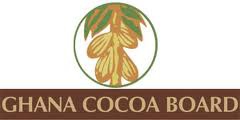The Ghana Cocoa Board (Cocobod) is experiencing tough times and facing huge financial constraints which have brought about an uneasy calm in the workplace. A circular signed by its former Chief Executive, Mr. Anthony Fofie, dated 20th November, 2013 with the heading “FINANCIAL CONSTRAINTS FACING THE BOARD – THE WAY FORWARD”, underscored the severity of the Board’s precarious financial position.
The management has undertaken a wide range of cost-cutting measures to ensure the sustainability of the Board and the cocoa industry as a whole. Among them are a temporary freeze on the 2012/2013 staff appraisal and promotion exercise. There is also a temporary freeze on the annual staff salary increment, and also a temporary freeze on overtime payment.
A freeze has been placed on new contract appointments. The circular also directed that staff transfers should be controlled to minimise the payment of transfer grants. The cocoa industry is not the least bit surprised at the turn of events in an institution which is the sole buyer and seller of the entire cocoa produced in the country.
Players believe Cocobod management’s decision to undertake certain investments and also acquire some properties have contributed largely to sending the board into this financial quagmire. For instance, last year the Board acquired a warehouse complex in Apowa near Takoradi at the cost of a whopping US$140million, even though it is constructing a 100,000 tonne state-of-the-art warehouse in the same area at a cost of US$75million -- which is almost completed.
It has been said that the acquisition of the US$140million warehouse complex was not a prudent decision because of the fact the Board is putting up its own -- aside from owning a 50,000 tonne warehouse in Tema. The ill-advised purchase has consequently created a big hole in Cocobod’s finances.
Cocobod has also acquired Swanzy Shopping Arcade at an undisclosed figure. It is believed that the then-Managing Director of the National Investment Bank -- who also doubled as the Chairman of the Ghana Cocoa Board --was very instrumental in the decision to acquire property.
It will be recalled that Cocobod’s increased the producer price of cocoa by 33 percent in the 2010/11, the expectant corresponding increase in the price of cocoa on the world market did not happen -- but rather, there was a price drop. And to further worsen the situation, Cocobod increased the producer price by another 6 percent in the last two seasons.
And because Cocobod always undertakes forward contracts with its buyers who are supplied the bulk of the produce, it doesn’t benefit from spot sales much even if the spot prices are very good.
The current financial difficulties call into question how effectively the organisation has been managed in the last few years, considering the rather encouraging statistics for cocoa production in Ghana over recent years.
Ghana, as the second-biggest producer, runs a two-cycle cocoa season consisting of the October-June main crop harvest which is mainly exported, and the July-September light crop that is discounted to local grinders.
The 2013/14 main crop season opened on October 18 with an initial target of buying around 830,000 tonnes.
The country produced 835,410 tonnes of cocoa during the 2012/13 crop year, down 5 percent on the previous season.
An unprecedented one million tonnes of cocoa was produced during the 2010/11crop-year, thanks to good weather and improved farming techniques -- but production declined to about 850,000 tonnes in the 2011/12 season.
Business News of Monday, 16 December 2013
Source: B&FT
COCOBOD in dire straits

















